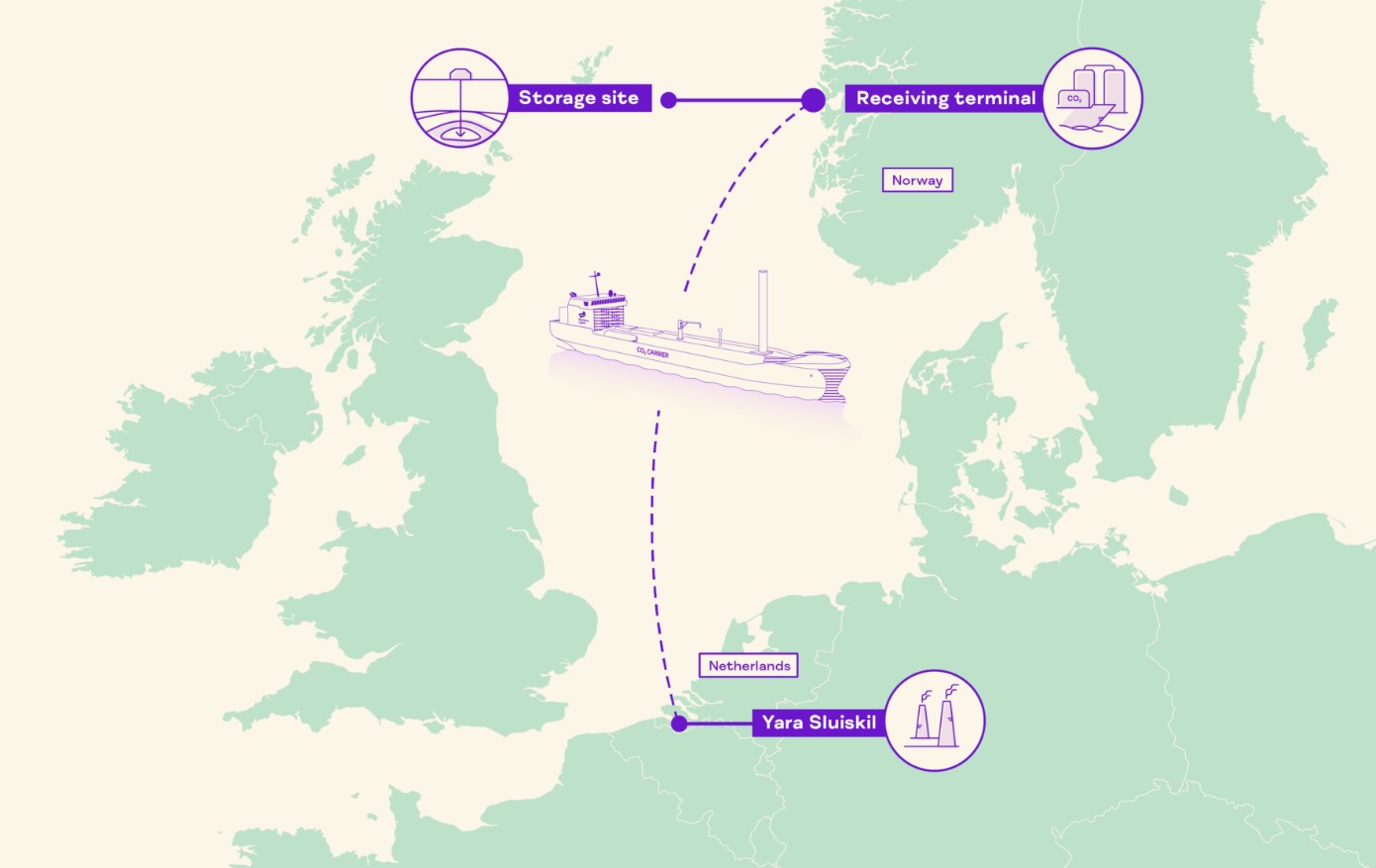Norway’s Northern Lights, a joint venture owned by Equinor, Shell, and TotalEnergies, has signed what it says is the world’s first commercial agreement on cross border CO2 transportation and storage with Yara.
According to a joint statement, Yara and Northern Lights have agreed on the main commercial terms to transport CO2 captured from Yara Sluiskil, an ammonia and fertilizer plant in the Netherlands, and permanently store it under the seabed off the coast of western Norway.
When the final contractual details are firmed up, this would be the first ever cross border CO2 transport and storage agreement, the partners claim.
It would set the standard for other industrial companies across Europe looking to use Northern Lights – and other emerging CO2 transport options and stores in the North Sea – as a key part of their decarbonization strategies, the statement said.
800,000 tonnes of CO2
Yara Sluiskil has already cut 3.4 million tonnes of CO2 emissions per year from its ammonia and fertilizer production since 1990, according to the statement.
Significant volumes of carbon dioxide are reused in greenhouse plant production, as an ingredient for carbonated drinks and for other purposes such as urea and AdBlue, a diesel product to reduce harmful gases from diesel engines.
From early 2025, 800,000 tonnes of pure CO2 will be captured, compressed and liquefied in the Netherlands, and then transported to the Northern Lights store at 2,600 meters under the seabed off the coast of Øygarden.
LNG-powered CO2 carriers
Northern Lights is the transport and storage part of the Longship project, funded 80 percent by the Norwegian government.
The Phase 1 installations are scheduled to come on stream in 2024, with the ability to handle 1.5 million tons of CO2 per year.
Last year, China’s Dalian Shipbuilding Industry (DSIC) won a contract to build two LNG-powered CO2 carriers which will serve the Northern Lights JV.
Besides LNG power, the 7,500 cbm vessels would feature a wind-assisted propulsion system and air lubrication in order to reduce carbon intensity by around 34 percent compared to conventional systems, the JV previously said.

